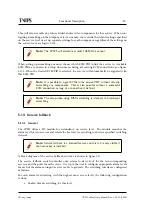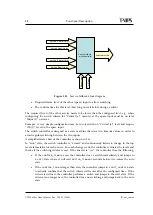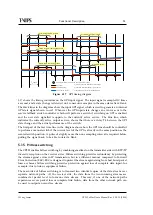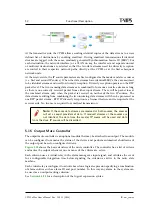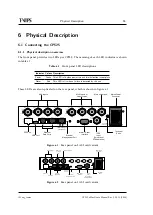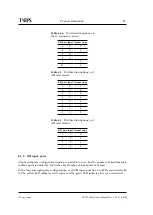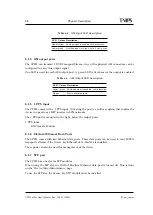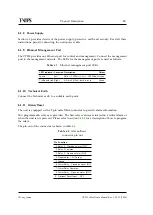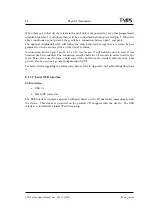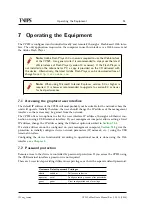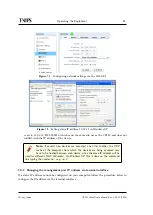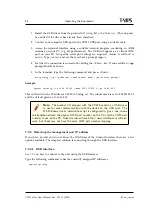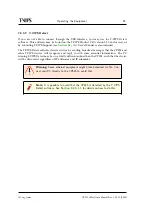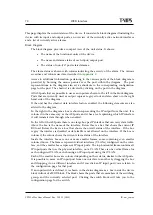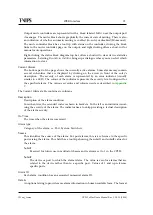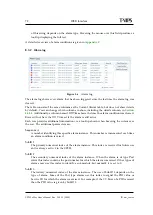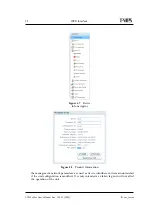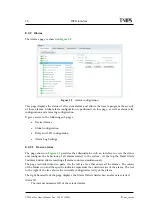
Operating the Equipment
61
ID: um_tsmux
CP525 cMux User’s Manual Rev. 5.20.12 (3944)
7 Operating the Equipment
The CP525 is configured and controlled locally and remotely through a Flash-based Web inter-
face. The only application required on the computer to use this interface is a Web browser and
the Adobe Flash Player.
Note:
Adobe Flash Player 9.0 or newer is required to use the Web interface
of the CP525. As a general rule it is recommended to always use the latest
official release of Flash Player (version 10 or newer). If the Flash Player is
not installed on the adminstrator PC, a copy is provided on the CD delivered with
the device. Alternatively, the latest Adobe Flash Player can be downloaded free of
charge from
Note:
When using Microsoft Internet Explorer, version 6.0 or higher is
required. It is however recommended to upgrade to version 8.0 or newer
for best performance.
7.1 Accessing the graphical user interface
The default IP address of the CP525 will most probably not be suitable for the network where the
unit will operate. Initially therefore, the user should change the IP address of the management
interface so that access may be gained from the network.
The CP525 offers two options to alter the user interface IP address; through an Ethernet con-
nection or using a USB terminal interface. If your management computer allows setting a fixed
IP address, change the IP address using the Ethernet option described in
If a static address cannot be configured on your management computer,
gives the
procedure to initially configure device network parameters (IP, netmask, etc...) using the USB
terminal interface.
Configuring the device functionality according to operational needs is done using the Web
interface, see
7.2 Password protection
Remote access to the device is controlled by password protection. If you access the CP525 using
the USB terminal interface a password is not required.
There are 3 user levels providing different user privileges, each with a separate default password:
Username Default password Privileges
admin
salvador
Full access to device
operator
natal
Configure setting, cannot alter passwords
guest
guest
View configuration and alarm logs
Summary of Contents for CP525 cMux
Page 2: ......
Page 10: ......
Page 12: ...12 CP525 cMux User s Manual Rev 5 20 12 3944 ID um_tsmux ...
Page 18: ...18 CP525 cMux User s Manual Rev 5 20 12 3944 ID um_tsmux ...
Page 24: ...24 CP525 cMux User s Manual Rev 5 20 12 3944 ID um_tsmux ...
Page 66: ...66 CP525 cMux User s Manual Rev 5 20 12 3944 ID um_tsmux ...
Page 238: ...238 CP525 cMux User s Manual Rev 5 20 12 3944 ID um_tsmux ...
Page 248: ...248 CP525 cMux User s Manual Rev 5 20 12 3944 ID um_tsmux ...
Page 276: ...276 CP525 cMux User s Manual Rev 5 20 12 3944 ID um_tsmux ...

